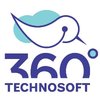3 Anomalous Jobs

iPhone Developer
Anomalous
posted 4d ago
Job Role Insights
Key skills for the job
Job Description
Key Responsibilities:
- App Development : Writing, testing, and maintaining code for iOS applications using programming languages like Swift or Objective-C.
- User Interface (UI) Design : Collaborating with designers to implement smooth, attractive, and intuitive user interfaces that align with Apple's Human Interface Guidelines.
- App Testing and Debugging : Ensuring that applications work efficiently and are free of bugs or issues by conducting thorough testing using tools like Xcode and TestFlight.
- Integration with APIs and Databases : Connecting apps with backend servers, cloud services, and databases to handle data storage, user authentication, and communication with third-party services.
- Performance Optimization : Analyzing and improving the performance, responsiveness, and scalability of apps to meet user demands and run efficiently on different devices.
- App Store Compliance : Ensuring that applications meet Apple's App Store guidelines for approval, which includes adhering to privacy policies and avoiding prohibited content.
- Maintenance and Updates : After an app is launched, iPhone developers often work on improving the app by adding new features, fixing bugs, or releasing security updates.
- Collaboration : Working with other developers, designers, project managers, and quality assurance testers to ensure a cohesive development process.
Employment Type: Full Time, Permanent
Read full job description What people at Anomalous are saying
What Anomalous employees are saying about work life
based on 2 employees
Day Shift
Similar Jobs for you
Share an Interview





























